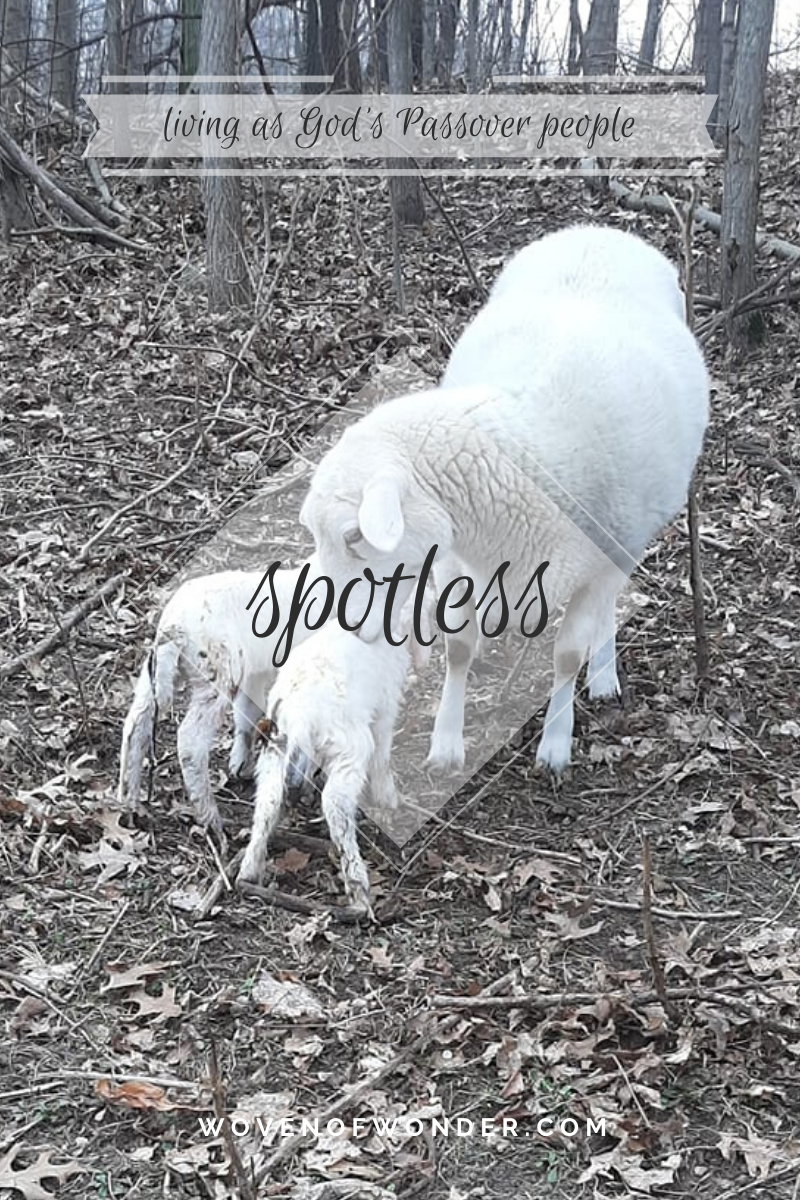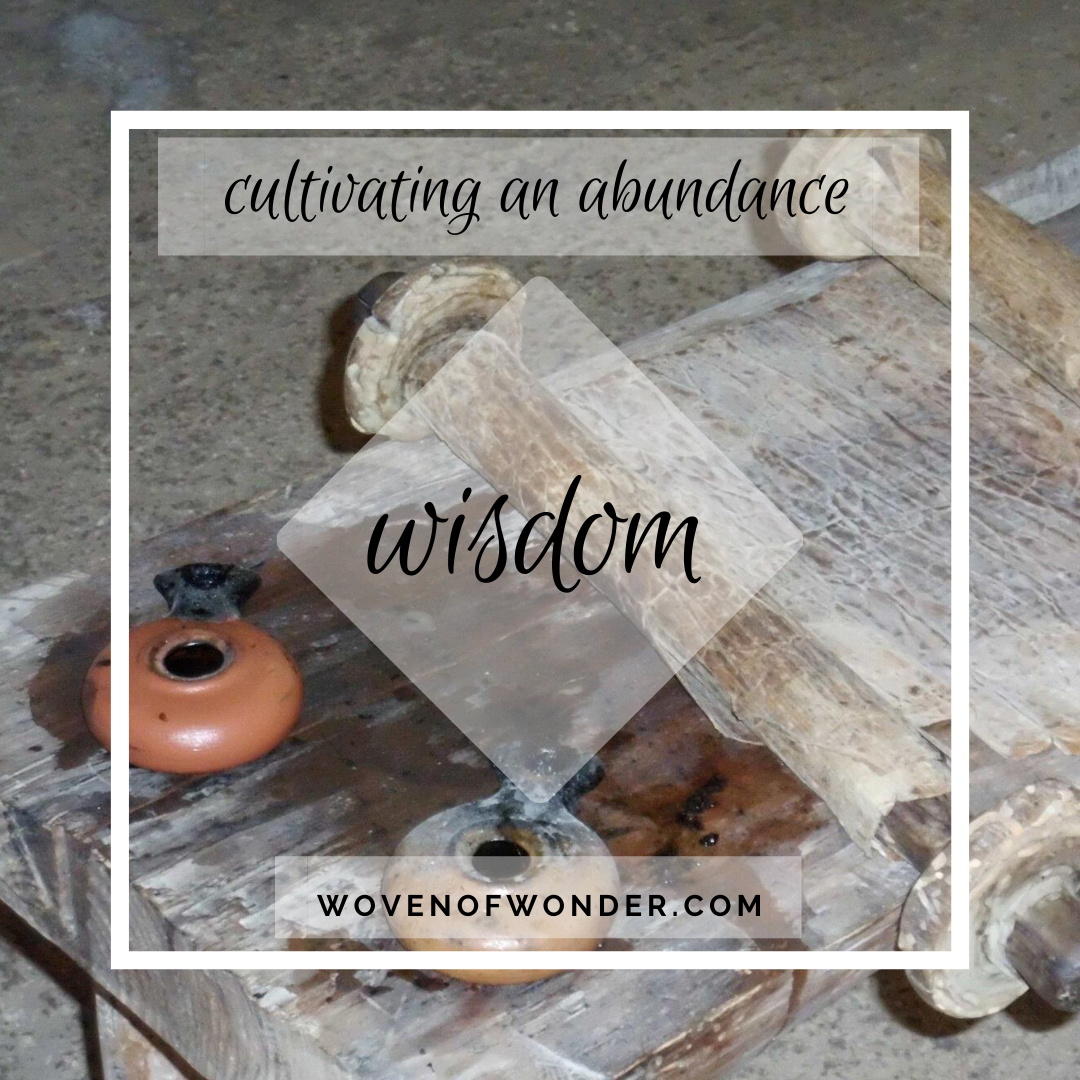
spotless
Huddled in their homes, seeking shelter from the chaos that threatened to tear their world apart, families waited anxiously for word that all was well outside. There had been murmurings of a Redeemer who had come to set them free, but the idea seemed ludicrous, especially in light of present circumstances. For just as rampant were the rumors that Death stalked any who ventured beyond their front doors …
nothing new under the sun
Conditions surrounding the first Passover were not all that different from today, in some ways. Let’s slip on their worn sandals for a moment, and see what the plight of these ancient Hebrews might have to teach us.
Our journey begins in a place we’re all familiar with: bondage. Not solely emotional or spiritual like ours, but physical, literal—the chafing of ropes, the slicing of whips, the grueling labor wringing out sweat that stings the eyes, burns into open wounds. Men, women, children, forced to work, forced to jump to the whim of merciless captors. No choices, no future, no hope. Feel the frustration building at the injustice of slavery, the futile indignity of raising an outcry with no one to hear.
Though impossible to discern from within the pit of blindness and fear, there is Someone listening. Someone has heard the cries for mercy and awaits only the fullness of time to respond, to act, to set free. Hold on, Beloved—your Rescuer is on His way!
a troubled history
Generations ago, in the swelter and glare of swirling Egyptian sands, the enslaved Hebrews cried out to God for deliverance. They could trace their line back to Abraham, the forefather of their faith, and to his son Isaac, the child of the Promise. The line continued through Jacob the supplanter, renamed Israel: the one who wrestles with God. Then came Jacob’s sons, the twelve patriarchs, including Joseph, the golden child who, after a series of setbacks, rose to power in Egypt and saved all the known world from starvation. The Hebrews were a small but proud race, and the humiliation of their descent into slavery after such a promising start chaffed their spirits as much as their literal bonds chaffed their flesh.
As their burdens grew heavier, their groaning reached the ear of God. He heard the cry of His people and remembered the covenant He had made with them. Even in the midst of their suffering, they had not been forgotten.
the birth of a people
God prepared for His people a deliverer, one of their own who had been brought up in the household of the king. Moses was an unlikely hero, slow of speech and tongue, hesitant to stand on his own, but willing to be used. Through this stumbling savior, God brought judgment on the gods of Egypt, struck terror into unbelieving hearts, and cleared the way for His people’s march to freedom.
On the brink of the final plague, God gave Moses specific instructions for His people. Each household was to select a lamb on the tenth day of the month and keep it until the fourteenth day. During those four days, they were to keep careful watch, inspecting the lamb to make sure it was completely perfect, without spot or blemish. When the final day arrived, they were to slaughter the lamb at evening. Taking a branch of hyssop, they were to spread the lamb’s blood on the sides and top of their doorframe. The meat was to be roasted over the fire and eaten with bitter herbs and bread made without yeast, lest they be delayed while waiting for it to rise. They should eat with staffs in hand, shoes on their feet, ready to leave at a moment’s notice, and no meat should be left over until morning.
As they slept, the Lord said, He would pass through the land, striking down the firstborn of both people and animals, bringing judgment on the gods of Egypt. But the lamb’s blood would be a sign on their houses, and wherever He saw the blood, He would pass over, leaving life rather than death in His wake.
The celebration of Passover served as the birthday of the people of Israel. In Abraham, they had been chosen, selected, called for a powerful purpose. Each successive generation had wrestled and walked with God, receiving added glimpses of His character and ways. Now, history was ripe for the Lord to form them into a people, His people, and to show Himself to them in greater fullness.
a Redeemer comes
At the first Passover, God revealed Himself as Redeemer. Just as Adam and Eve—created for greatness—had fallen into the bondage of sin, so Abraham’s family—chosen for covenant—had fallen into bondage. Ever vigilant, God heard the cry of His people and made a way to set them free. By His hand, they would be delivered. By their response, their rescue would be complete.
God planned for the Hebrew children to leave behind their slavery in Egypt and set out for the Promised Land He had prepared for them. Yet their salvation was contingent upon their belief and obedience. They had to believe Moses spoke the truth from God and act according to that belief. If they did not, no blood would be spilled, no sign spread upon their doorframes, no distinction made between them and their neighbors to save them from falling under the plague of death that was coming. Those who—in belief and obedience—followed the word God gave to Moses, found salvation from the curse of death. In faith, they walked out under the blood and into a whole new life.
The tradition of God stepping into human history to redeem His people had its introduction in Passover, but it found fulfillment in the person of Jesus Christ. Like Moses, Jesus could relate to the people in His humanity; both also knew the ways of the King. But Jesus was not only the Deliverer, chosen by God to set His people free. Jesus was also the perfect Passover Lamb, the One who would lay down His life as ransom.
the Lamb of God
At the close of His earthly ministry, Jesus entered Jerusalem on the tenth day of the month, the same day the lambs were selected for sacrifice. Over the next four days, He, too, was examined by many who declared Him spotless, blameless, innocent—Pilate and his wife, Herod, Judas, the thief on the cross, the Roman centurion who presided over His execution. Jesus was slain on the fourteenth day, His blood spread on the top and sides of the crossbeams. Above His head hung a sign, declaring His identity to the world. Perhaps those who heard the Lamb of God cry out from the cross also heard the faint echo of the Passover lambs being led to the slaughter, bearing round their necks signs identifying their owners.
God provided salvation to any and all who would come through the willing sacrifice of Jesus Christ. Just as with the first Passover, personal responsibility remains. In both cases, belief in God’s provision for salvation, and obedience in coming under the blood of the sacrificial Lamb are absolutely necessary. Any Hebrews who failed to believe in the power and effectiveness of the lamb’s blood and act on that belief would find no protection against death; any who disobeyed the instruction to cross under the blood and follow their deliverer would remain slaves in Egypt.
The opportunity God offers us today is strikingly similar. In His power and mercy, God has provided everything necessary for our salvation. Will we invite the shed blood of Jesus to be spread upon our hearts? Will we choose LIFE, and not death—not only in the experience of salvation, but even in the simple, daily matters that help us align with the heart of God? In this time of fear and uncertainty, will we still believe in the promise of God to set us free?
In this time of fear and uncertainty, will we still believe in the promise of God to set us free?
The Hebrew children—along with their Egyptian neighbors—who trusted in this unseen God stepped through the blood, out of death, and into new life. They left behind the fear of their own mortality, the horrors of slavery, and the chaos of a world falling to pieces all around them. They exchanged all this for peace, for freedom, and for an exhilarating (and challenging!) identity as the chosen people of God. As we approach the celebration of Passover during a time of crisis, as we anticipate the joyous resurrection (and return!) of our Lord Jesus, God invites us to do the same. How will we respond?





